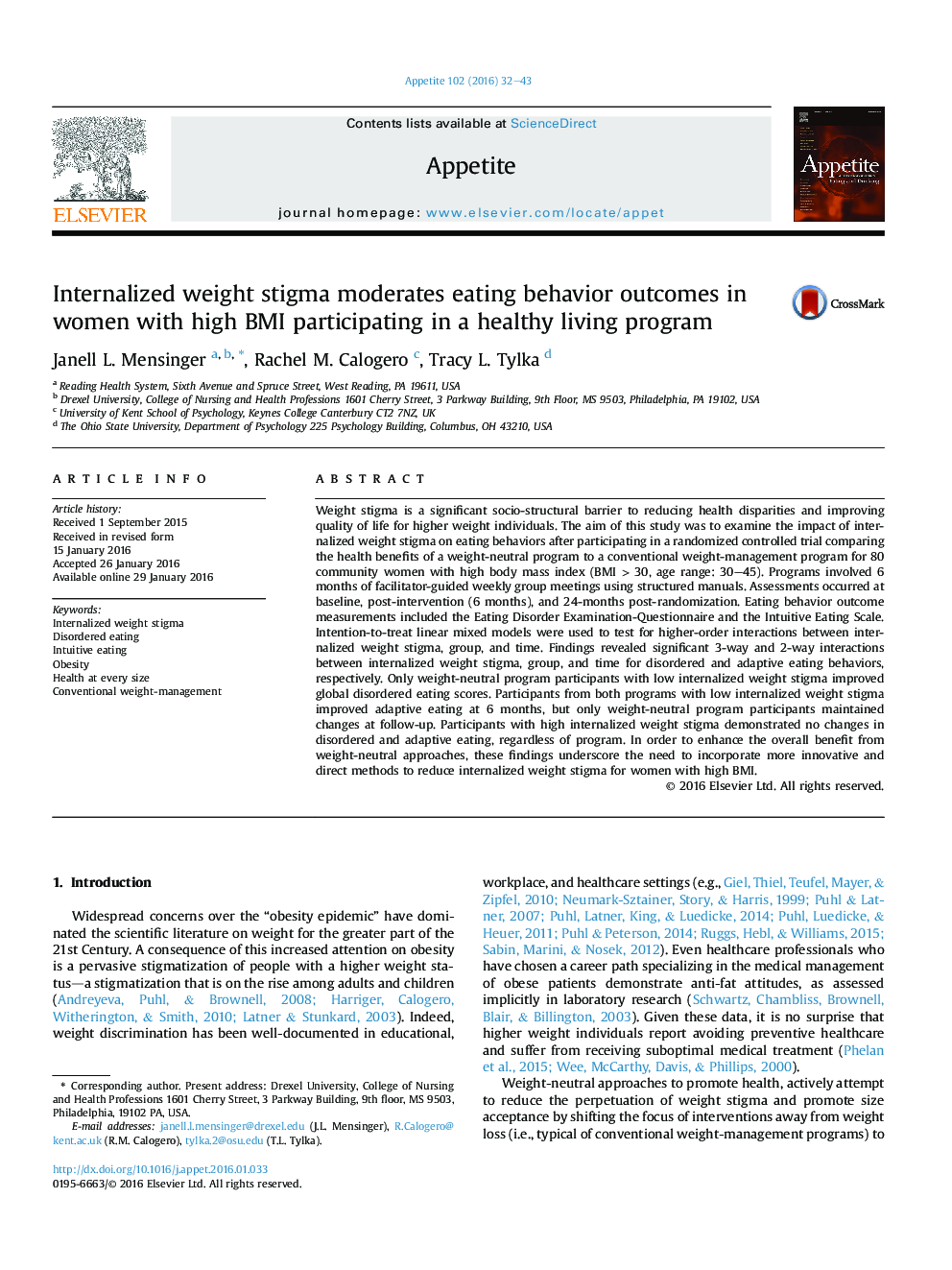| Article ID | Journal | Published Year | Pages | File Type |
|---|---|---|---|---|
| 939272 | Appetite | 2016 | 12 Pages |
•Women with high BMI participated in a weight-neutral or conventional weight-management program.•Impact of internalized weight stigma (IWS) on women's eating behaviors was explored.•Women in the weight-neutral program with low IWS improved disordered and adaptive eating.•Women with high IWS did not improve disordered or adaptive eating in either program.
Weight stigma is a significant socio-structural barrier to reducing health disparities and improving quality of life for higher weight individuals. The aim of this study was to examine the impact of internalized weight stigma on eating behaviors after participating in a randomized controlled trial comparing the health benefits of a weight-neutral program to a conventional weight-management program for 80 community women with high body mass index (BMI > 30, age range: 30–45). Programs involved 6 months of facilitator-guided weekly group meetings using structured manuals. Assessments occurred at baseline, post-intervention (6 months), and 24-months post-randomization. Eating behavior outcome measurements included the Eating Disorder Examination-Questionnaire and the Intuitive Eating Scale. Intention-to-treat linear mixed models were used to test for higher-order interactions between internalized weight stigma, group, and time. Findings revealed significant 3-way and 2-way interactions between internalized weight stigma, group, and time for disordered and adaptive eating behaviors, respectively. Only weight-neutral program participants with low internalized weight stigma improved global disordered eating scores. Participants from both programs with low internalized weight stigma improved adaptive eating at 6 months, but only weight-neutral program participants maintained changes at follow-up. Participants with high internalized weight stigma demonstrated no changes in disordered and adaptive eating, regardless of program. In order to enhance the overall benefit from weight-neutral approaches, these findings underscore the need to incorporate more innovative and direct methods to reduce internalized weight stigma for women with high BMI.
